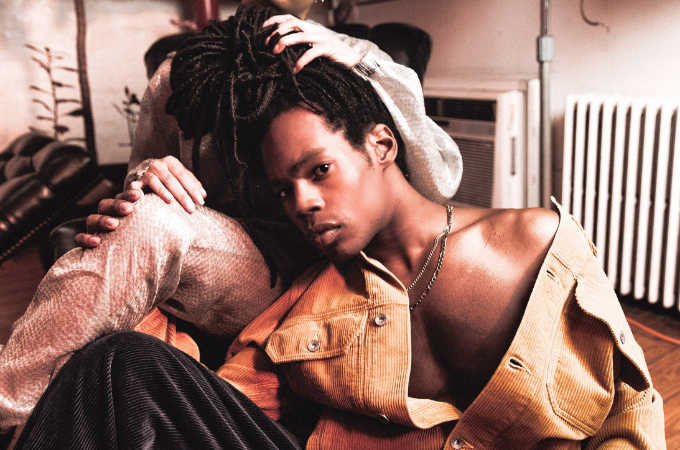
i. The Challenge
After you have tried and failed at patronizing the cheap hairdressers who plait hair under an improvised shade, blocking the scorching sun from piercing their skin, you elect for the urban-designed salon. You don’t know whether they too will stare at you askance or tell you it’s against their belief to plait a man’s hair, but you proceed for two reasons. One, because you strongly believe that a conservative-minded person cannot float such a plush business without having to compromise their belief. And two, because you were embroidered with the virtue of courage right from inception.
As you proceed into the salon, you meet a busy scene. You are the only man. You skirt into the scene and meet cold stares welcoming you. Everyone else is a female—young, geriatric. You don’t feel your legs hitting the ground anymore. There’s a sense of levitation and suddenly, you are bothered by how your legs appear to the viewers—whether your shirt is not awkwardly up—revealing your underpants—or your buttocks, jiggling, entertaining onlookers. You say a short prayer asking God to temporarily blindfold everyone till you find a seat.
Bros wetin you want? A tiny voice apprehends you.
I wan make my hair.
You sit in front of a huge mirror emblazoned on the wall as though the manager intended for it to extend outside of the salon. The things that catch your eye are the beautiful faces staring at you. You see the wonder in their eyes. Humanity is already plagued with seven world wonders, seeing a man with plenty of hair, and deciding to plait it, becomes the eighth wonder afflicting their mind. The look on their faces suggests their heads might explode if they continued wondering. You pluck your eye from their stare and concentrate on your beard which seems fuller than what you know it to be.
You whip out your phone from your pocket to indulge yourself on Instagram as an attempt to forget the new world in which you find yourself. You’re welcomed by a picture of Mi Abaga, your favorite African rapper. He looks shorter than usual in the image, but you are not bothered, you know much about camera angles. You insert the love emoji and continue scrolling. The second post on your feed is that of Chimamanda Ngozi Adichie, your favorite writer. She looks bright, a respite after death had raised the red card for her parents. Your face breaks into a smile. You admire her hair, how it is always natural and neatly kept, how she is bold enough to carry her hair just the way it is.
Bros which style you wan do? said the voice again. She was dark, short, and looked well-tended, with a visible gap tooth as she conversed with you.
Oh! You exclaim and exit Instagram. You tap the phone gallery and immediately, a picture of Kendrick Lamar takes over the screen. This exact style.
Ok, she says as she grips your hair and tilts it sideways to check if it will achieve the hairstyle you have chosen.
Your hair no go reach but we fit add attachment.
Okay add the attachment, but I hope it doesn’t cost much?
Everything two thousand.
Okay. Go on.
You watch as she combs your hair with vigor, her face squeezes from the impact of the combing. There’s passion in her eyes. You conclude in your mind that this lady loves her job, and it is quite an important ingredient needed to float a successful business. She brings a bunch of long attachments and places them on the handle of your chair. She subtracts from the attachment bit by bit, with the tips of her finger, as if picking a pinch of salt. You watch her repeat the same process over and over. You bring your gaze back to the mirror and clandestinely marvel at how the crowd is glued to your face as though they were watching a gripping psychological drama. You wondered if the flavor of your skin was the can’t-take-your-eyes-off-my-face type. You cursed the moment you stepped into the salon. Your mind descended into a realm of guilt in which moral voices were pontificating the inclemency of your braids. The awkwardness of the whole situation overwhelmed you so much that you were on the brink of calling everything off, but chose to persevere since she had gone far.
Soon, she finishes braiding and again, you are harassed by the thought of appearing like a cross-dresser or an effete. No, you are not judging cross-dressers or the effete, you believe firmly in the idea of human liberty, but you simply want to appear as a man who only braided his hair. You stare harder and feel yourself dwindle into anxiety. You try to unknot yourself from the uneasiness by telling yourself that thick beards and gruff voices are not biological testimonies of cross-dressers. You stroke your beard and clear your throat to ascertain your possession of these features.
Bros the hair fine o, I like am, says the hairdressers and other onlookers.
Your face breaks into an inextinguishable smile. You snap out of the anxiety that bequeathed you and bask in the euphoria of the compliments being slung at you. The hairdresser looks again, grinning, and says e fine well well. You whip out your wallet, count ₦2000 notes, and hand it over to her.
ii. The Repercussion
On your way to school, the whole street presses its gaze on you, and the same levitation you experienced at the salon, seems to have appeared again. The young school children who, the moment they see you, scurry off to their parents. They have learned that men who looked like you were the avatar of menace. Some of the youths stand and watch you in admiration as they vow to replicate your style once they are set free from the shackles of Parenthood and have gone somewhere far away from their parents. Others watch you with evident disgust, like they would watch an annoying villain in a movie.
The adult women conclude in their mind that you are a yahoo boy. They wonder why yahoo boys chose to appear indicative of their crime, in the days of riveting police rivalry, instead of just disguising. They pray against their daughters falling in love with boys like you. You appear in a way inconsistent with a God-fearing man. The men see you and remember their youthful days, how they too grew hair so much that it stood and defied gravity. They smile and say that you will get over it as they believe you are overwhelmed by juvenile delinquency. You board a taxi and alight at the school gate.
As you alight the taxi, you sight three military vans parked after the overhead bridge, not far from the school gate. This is strange, you say inwardly. The last time it happened, a student had been shot inside the school premises and the federal republic’s entire armed forces were brought to secure the school for that week. You tried guessing the reason behind their appearance this time, but nothing came to mind. You climbed the bridge and walked briskly until an assemblage of soldiers, wielding machine guns welcomed you as you descended the stairs. You tried fathoming the scene. Your intuition suddenly broke open as if an asteroid hit it. Something told you to check the date, so you brought out your phone and gawked at the screen.
7/7/2021. The day a prominent cult goes on a rampage, turning society into an avalanche of a war zone, initiating members into their midst. You slowed your pace, but the soldiers were all already watching you. You didn’t want to make any movement that would alert suspicion, so you said a prayer in your mind, you knew it was not going to God because by the holy standard you knew of, you were a sinner. You proceeded into their presence, as you walked by, you feigned pain in your left eye. You slowed your pace to scratch the eye, thinking they’d be touched to help you. They instead sat with their guns. You know that soldiers are known for their savagery, they have seen the worst of mankind, yet you still had faith in them. The moment was too intense for you to reason. You manage to walk by the scene and out of their presence.
At the school gate, you stop and laugh at the foolish drama you had just displayed. You thanked God you left unscathed.
iii. The Why
On entering the classroom, your appearance takes many heads with you to your seat. Even the lecturer looks stunned. As you sit, he stares for more seconds and the room dissolves into grave quietness.
Stand up! he says, pointing at you. Why are you on braids? Are you a musician or a footballer?
A musician sir. This was the usual lie you told to antagonize questions like that. You panicked he would ask you for an exhibit—to sing or play your music for the class.
Okay, sit! Don’t come late to my class next time, is that clear?
Yes, sir!
You don’t know who created the association between male musicians and braids, but you were not interested in the discourse. You only wanted the world to know that Black men going on braids should be normalized because it was the norm during the pre-colonial era.
After the class, a group of course mates circled you to discuss your new look. After they had complimented you, they wanted to know the reason.
What led you to do this? You look really good though, a girl among them said.
I just felt like it. I felt like making it because my hair was too much, and I didn’t want to cut it.
Why don’t you want to cut it?
Why should I cut it? I am an African man, and our hair has the grace of growing to any extent. So, cutting it should not be a necessity, but instead, a choice. And nobody should be judged for it.
But it is against Christianity.
You wore a derisive look. You hated that the discussion had geared towards religion and your irritation simmered as the questions continued.
Of course, I know. But embracing my full identity as an African is more pertinent to me than Christianity. The white man’s religion should not dictate my identity. They demonized dreadlocks by saying it signified carrying snakes on the head, and it is a thing of the devil. I’m braiding my hair to normalize it for African men and to show that our hair allows for various experiments—including the already demonized dreadlocks.
The look on their faces was of doubt. They all stared at you so savagely that you began to relate with scientists who suffered at the hands of the church in the medieval period. You stared back again, and then you saw astonished faces.



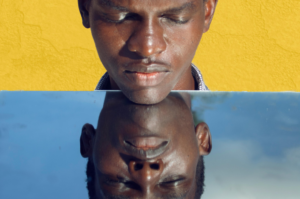
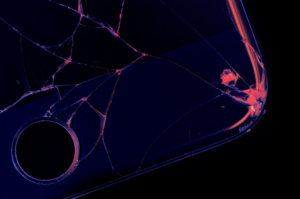


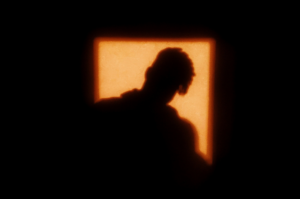
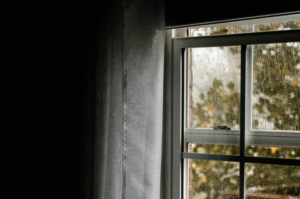

Esther October 23, 2022 10:50
Great read! I was captivated from the beginning to the end.